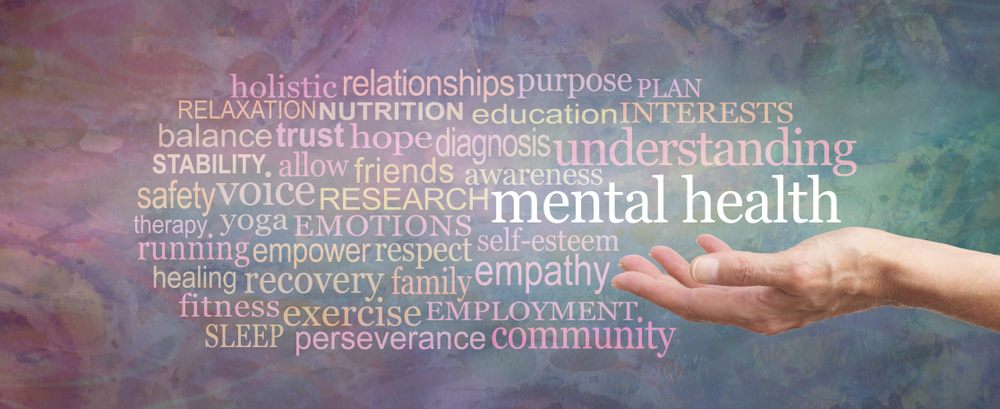back
Mental Health Education & Common Questions
Oct 13, 2020

While a mental health diagnosis poses some challenges, it doesn’t mean you can’t pursue a full life of learning, growing, and trying new things. Education is undoubtedly a part of that development process. Learning new things, especially in the classroom, gives you a chance to learn about new stuff alongside new people and teachers. Finishing a course is something to be proud of, which can boost your confidence and pride. Education is also critical to other life goals you may have for yourself, whether that is a dream job, financial independence, or something completely different.
What are Some of My Educational Options?
Beyond high school, you can choose from many options to find things you can excel in despite your diagnosis. Medical careers may be appealing to those who want to help others. Some medical education programs require just a few months, while others require many years of study. If you love to take things apart and put them back together, you might consider an educational program in automotive technologies or engineering. People who love to cook can complete culinary school in a relatively short time and work in a restaurant while they learn.
Does My Mental Health Condition Constitute an Educational Disability?
Elementary and secondary schools in the United States are required to provide free and appropriate education to students with and without disabilities. Colleges and other post-secondary schools don’t have to provide free education, but they cannot discriminate against those with disabilities. The institution may ask for documentation of your disability, which might include a doctor’s note describing the need for mental health education accommodations.
- Institutions providing post-secondary education may not bar disabled students from enrolling.
- They must accommodate disabilities to a reasonable extent to facilitate learning.
- If a school provides housing, it must be available to both typically abled and disabled residents.
What Services are Available to Help Me with My Education?
Depending on your areas of strength and challenges, you may find that some tasks are harder than others because of your mental health condition. However, the education system of elementary and high schools in the United States provides pathways to learn for differently-abled people of all kinds. Federal law requires public schools to make individual accommodations for students with documented mental health disabilities that interfere with normal activities of daily living. Private institutions may voluntarily make the same provisions. Here are a few examples:
- In grades kindergarten through 12, students may receive special education services or learn in some form of an alternative school setting. Accommodations are available through these programs. Some of the modifications you might find include shorter school days, more flexibility on deadlines to turn in work, and hybrid programs where you work part of the day and go to school part of the day.
- Many prefer to pursue a high school equivalent diploma like the GED (General Equivalency Degree) rather than struggle through traditional high school education. When you complete a GED program, the document you receive is the legal equivalent of a high school diploma. Community colleges and adult education centers usually offer the GED test preparation and exam for under $100. You do want to check the requirements carefully, though, because not everyone can take the GED. Most people who successfully pass the test have gone to a traditional school through at least grade 10.
- Supported education is also a great help to many learners who wish to pursue a college degree or another form of education after high school. A supported education specialist or supported education team (titles may vary) works with the student to ensure success. Some of the services associated with supported education are placement assistance, help with the admissions process, and aid in finding financial support. Others work with you on problem-solving, test strategies, and study skills. If you need an advocate to intervene for you in the school setting, a supported education specialist can usually do that.
- Academic adjustments are a type of accommodation you might request. You might ask for more time to take a test or for assistance from a classmate taking notes. As long as your requests don’t significantly disrupt the class, they will likely be honored. Academic adjustments should never cost extra money. Every institution has a process for requesting academic adjustments, usually available on the school’s website or through the admissions office.
Do Professors Have to Make Accommodations for My Disability?
Remember that even for students with documented mental health challenges, teachers and professors have leeway in the accommodations they are willing and able to make. You should have open, respectful, and honest communications with all of your instructors, and talk to the school’s counselors if you need help. If you know others with similar needs, you might ask for recommendations of professors who are particularly understanding and helpful. If you encounter a teacher who you feel is behaving in a discriminatory way because of your disability, seek out the school’s grievance procedure to determine who the designated staff member is for handling these issues.
Where Can I Learn More About Mental Health Education?
Our mission at MHS is to work for our clients, our community, and our staff. We value acceptance, inclusivity, and curiosity. These goals lead us to zealously advocate for our clients to help them get the education they want to pursue. At the same time, we work to give our clients the behavioral health tools to function well in the educational setting of their choice. Contact us today and let us help you pursue your dreams.
Photo Credit: Shutterstock/Nikki Zalewski

